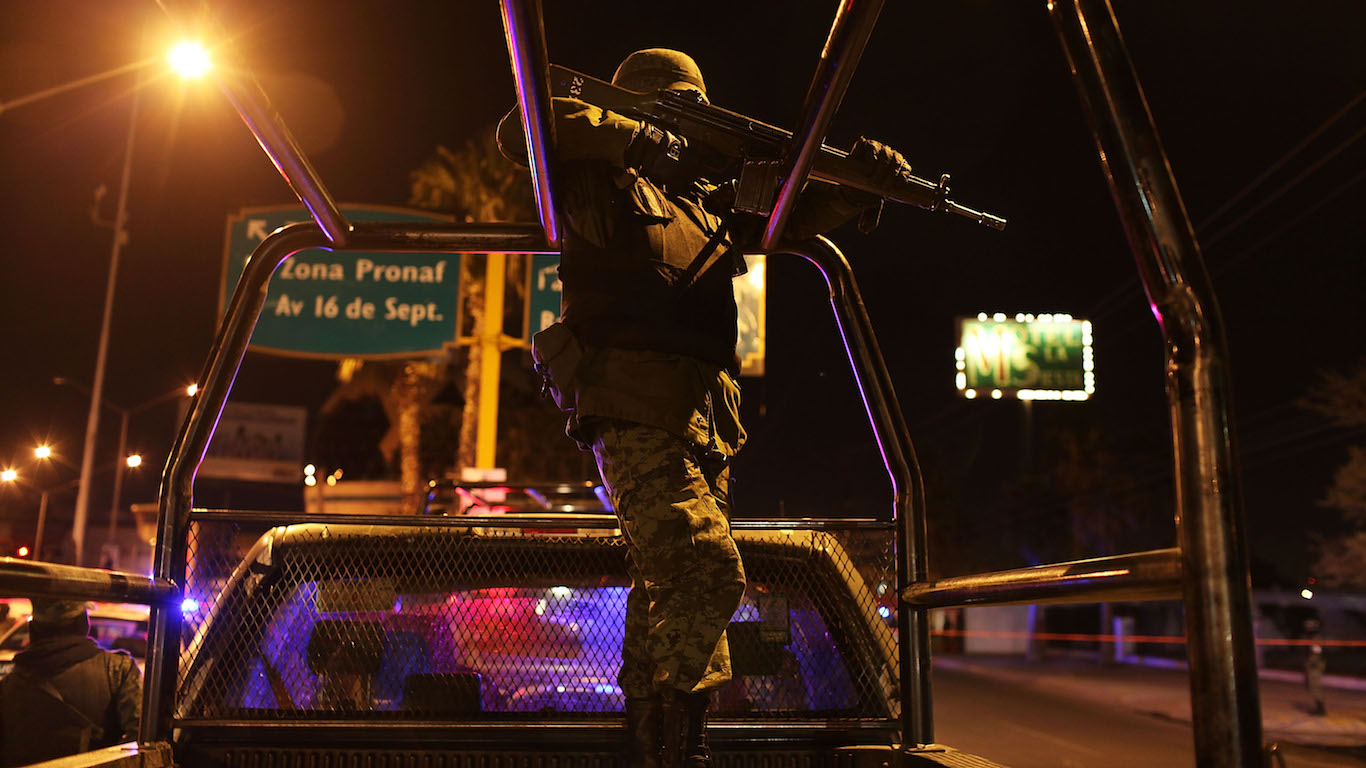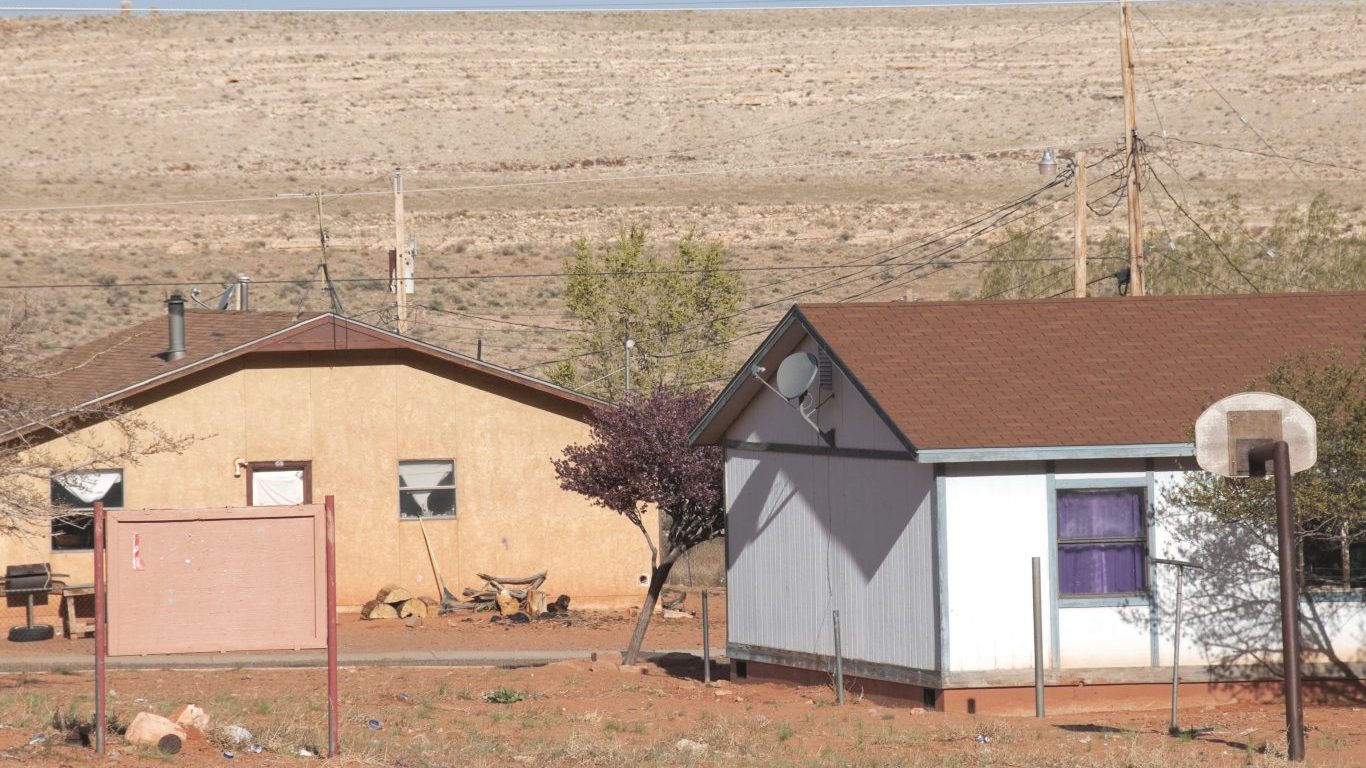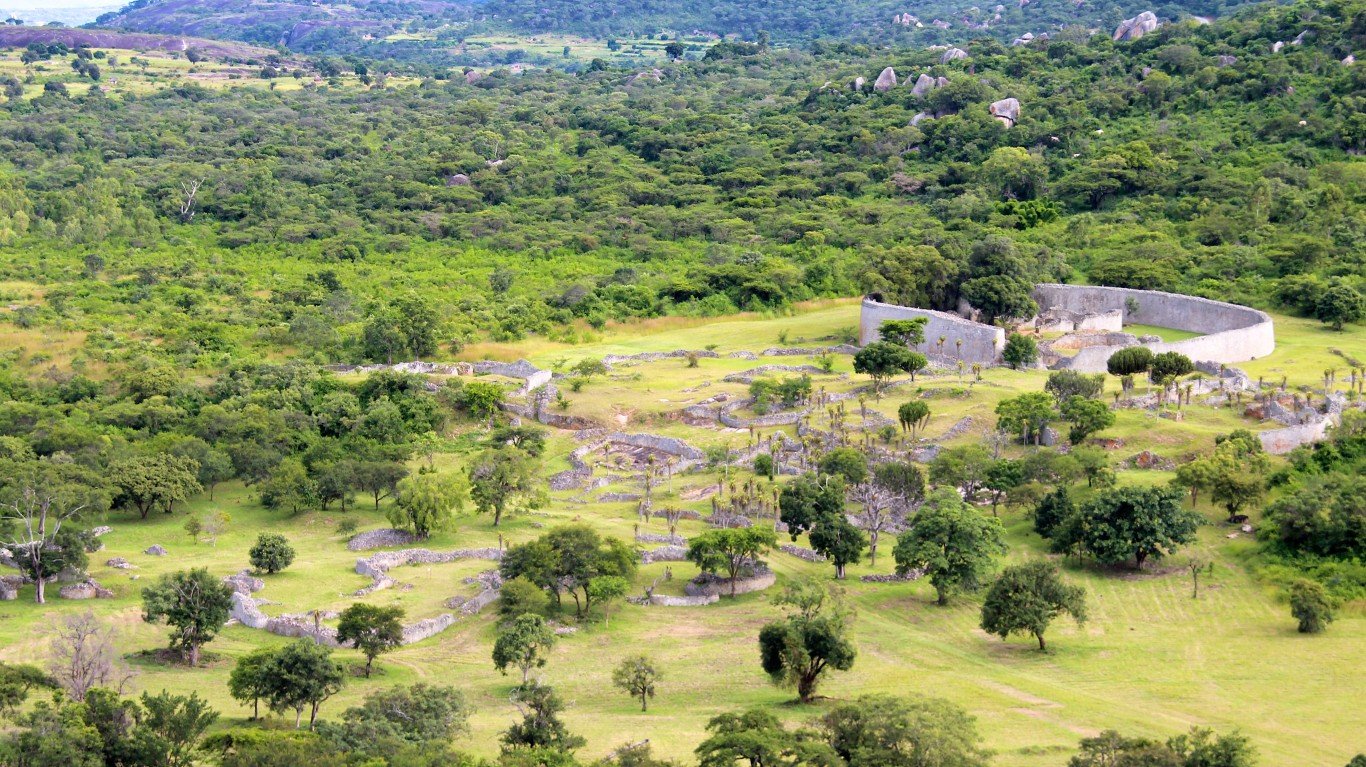

The British colony of South Rhodesia – today Zimbabwe – was named for the 19th-century English politician and entrepreneur Cecil Rhodes. Rhodes expected that it would always bear his name. “Did you ever hear of a country’s name being changed?” he once asked rhetorically.
If he only knew.
It’s one thing for a company to change its name and possibly risk confusing its customers, alienating its stakeholders, and raising questions among its employees. It’s quite another for a nation to do so. A country’s name is embedded in its identity, its culture, its history, and its place in the world. (These are some companies that changed their names after scandals.)
Nonetheless, many countries throughout history have acquired new names, many of them in the 20th and 21st centuries. To compile a list of countries that have changed their names, 24/7 Tempo reviewed materials from numerous online government sources, including the official websites of the U.K. government and the U.S. Department of State, as well as online sources including Britannica, National Geographic, Euronews, and The Guardian.
Nations change their names for a variety of reasons. African countries have done so to expunge monikers associated with their colonial past. Turkey switched its name to Türkiye for national pride and to disassociate the country from the bird that’s a symbol of Thanksgiving.
Commerce was the motivating factor for Holland and the Czech Republic to change names to the Netherlands and Czechia to better manage tourism and attract foreign investment. North Macedonia switched its name from Macedonia to settle a disagreement with Greece (where a region called Macedonia is located) and to smooth its entry into NATO. (These are the surprising stories behind 50 country names.)
Swapping a country’s name does not come without complications. Nations have to change the name on their currency, government letterheads, official signage, vehicle license plates, and countless other places. They have to make sure other nations and international agencies and organizations, both governmental and non-governmental, recognize the name change.
Click here to see 17 countries that have changed their names
It’s probably best that the country’s citizens are onboard with the name switch. Many residents of Czechia had no problem with the former Czech Republic and at first balked at the name change. In Eswatini and Türkiye, detractors of those nations’ leaders believe the name switch was a way to divert people’s attention away from the real problems facing their countries.
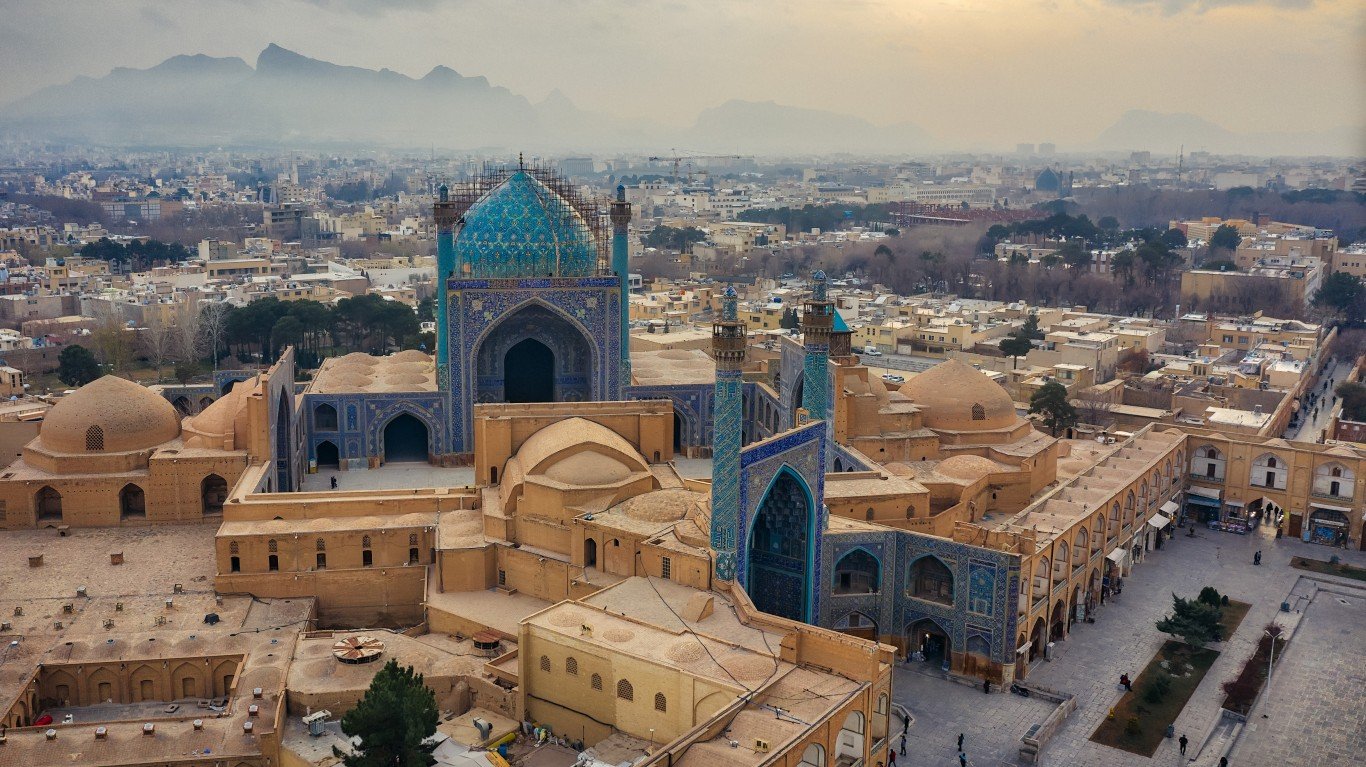
Iran
> Former name: Persia
> Year changed: 1935
In 1935 the Iranian government requested that those countries with whom it had diplomatic relations start calling the nation Iran instead of Persia. The idea allegedly originated with the Iranian ambassador to Germany, influenced by the Nazis, who had recently assumed power. Nazi Germany was seeking good relations with countries of “Aryan” blood, and it believed Iran was one of them. “Iran” is a cognate of “Aryan,” and derived from it, and Iranians hoped the change would signal a shift away from what was considered the disadvantageous influence of Great Britain and Russia. After the Allies invaded the country in 1941 and nationalized the oil industry, the name became generally accepted.
[in-text-ad]
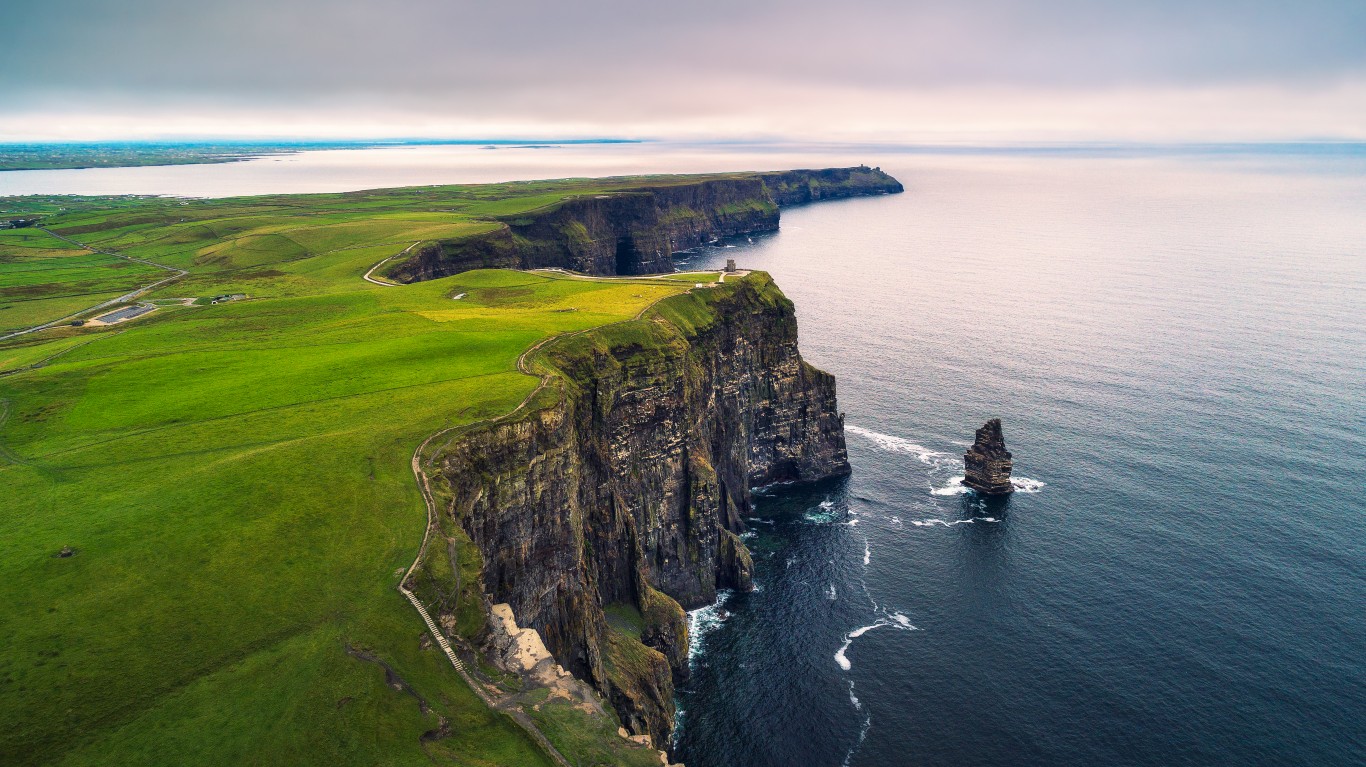
Ireland
> Former name: Irish Free State
> Year changed: 1937
Ireland began to shake off more than 300 years of English rule with the Anglo-Irish Treaty of late 1921. The accord ended the war of independence and established the Irish Free State, consisting of 26 of the island’s 32 counties. (The rest became Northern Ireland, administered by the British.) The Irish constitution of 1937 officially renamed the country Ireland – Éire in Irish. Ireland was declared a republic in 1949, and is sometimes referred to as the Republic of Ireland – but just plain Ireland remains its official name.
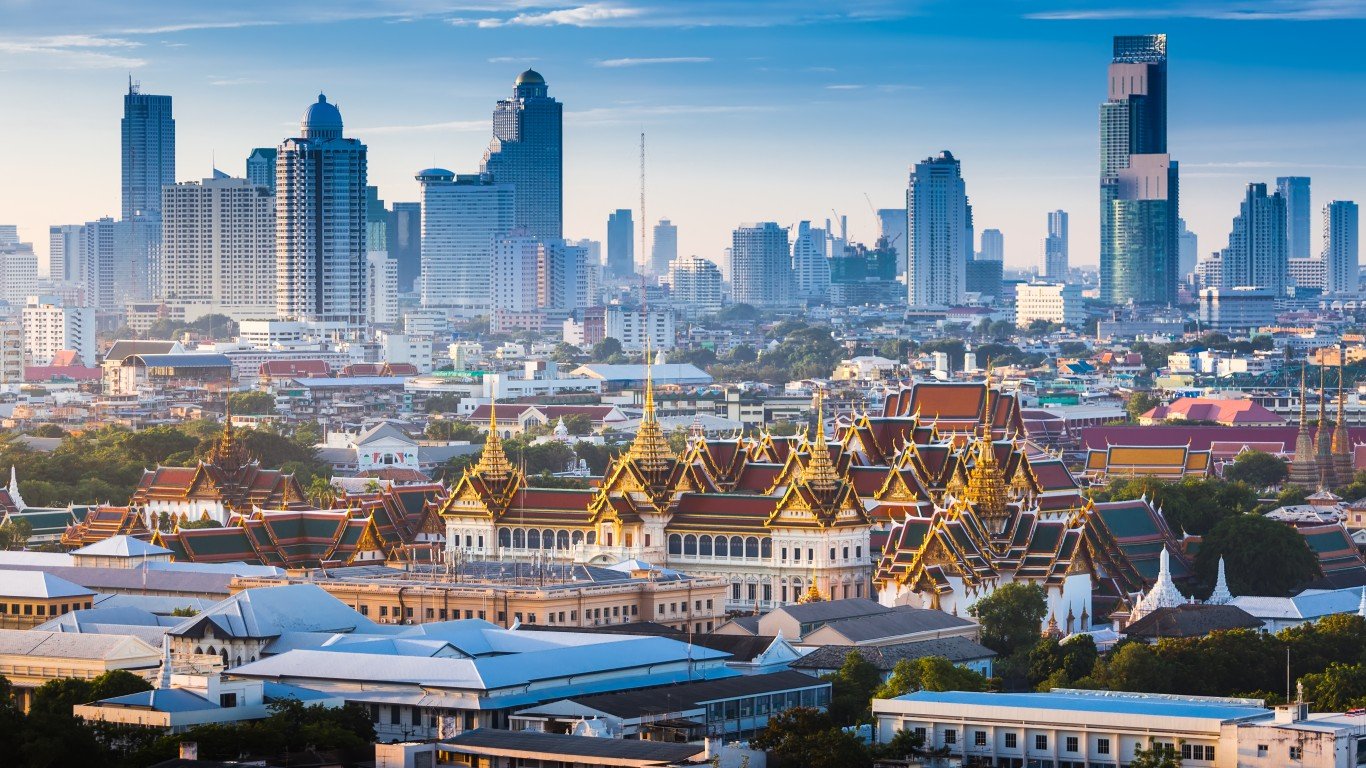
Thailand
> Former name: Siam
> Year changed: 1939
Thailand’s name was changed from Siam – a name possibly derived from a Sanskrit word meaning “dark,” given to it by foreigners – in 1939 by Plaek Phibunsongkhram, known commonly as Phibun. An army officer who became the country’s dictatorial prime minister, Phibun was a nationalist who sought the change as part of a modernization campaign and to help promote the country’s indigenous culture and language as a rebuke to its increasingly influential Chinese community. Various sources disagree on the exact derivation of “Thai,” which might mean “people,” “human being,” or “free man.”
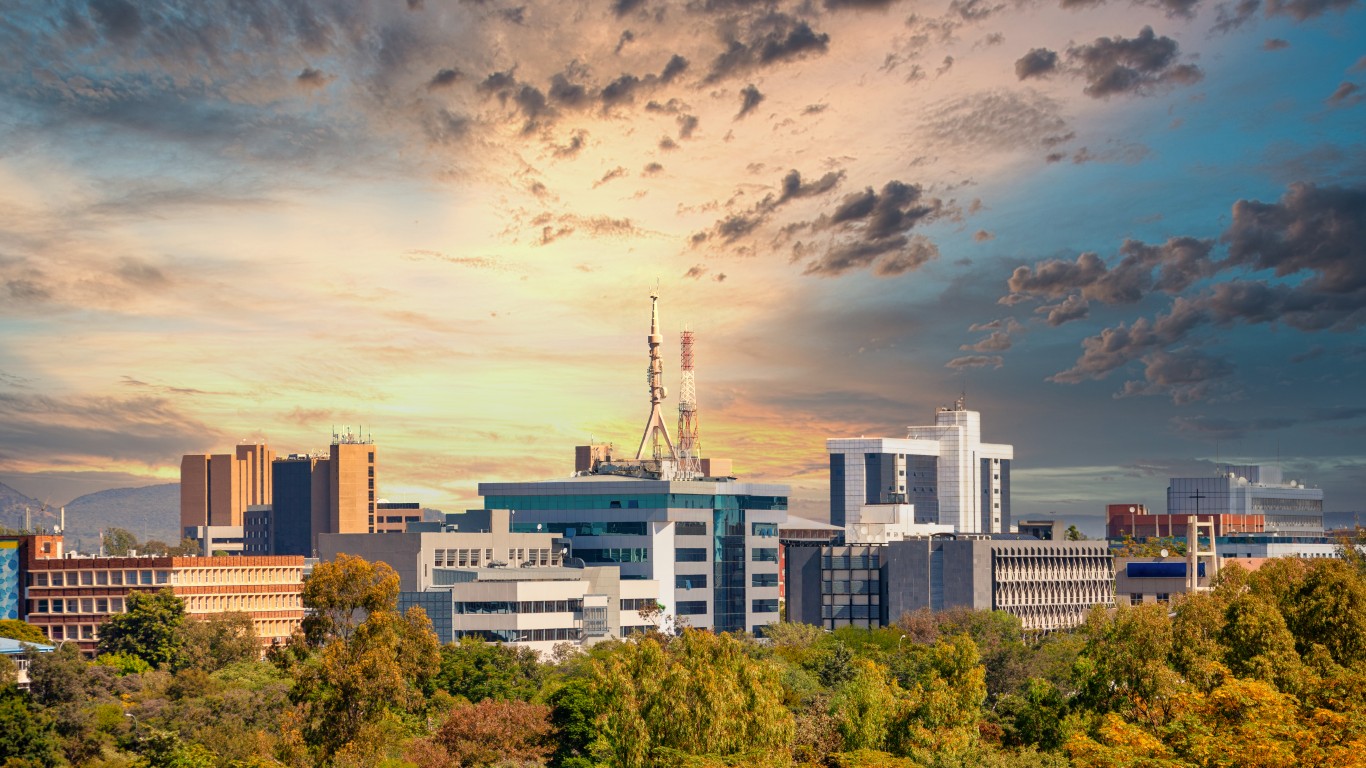
Botswana
> Former name: Bechuanaland Protectorate
> Year changed: 1966
Botswana – meaning “land of the Tswana,” the country’s main ethnic group – is a landlocked country in southern Africa bordered by Namibia, South Africa, and Zimbabwe, and is famous for its diamond mines. When the British established it as a protectorate in 1885, they named it for the “Bechuana” – an anglicized version of “Tswana.” The nation threw off this inaccurate version of the word when it became independent.
[in-text-ad-2]
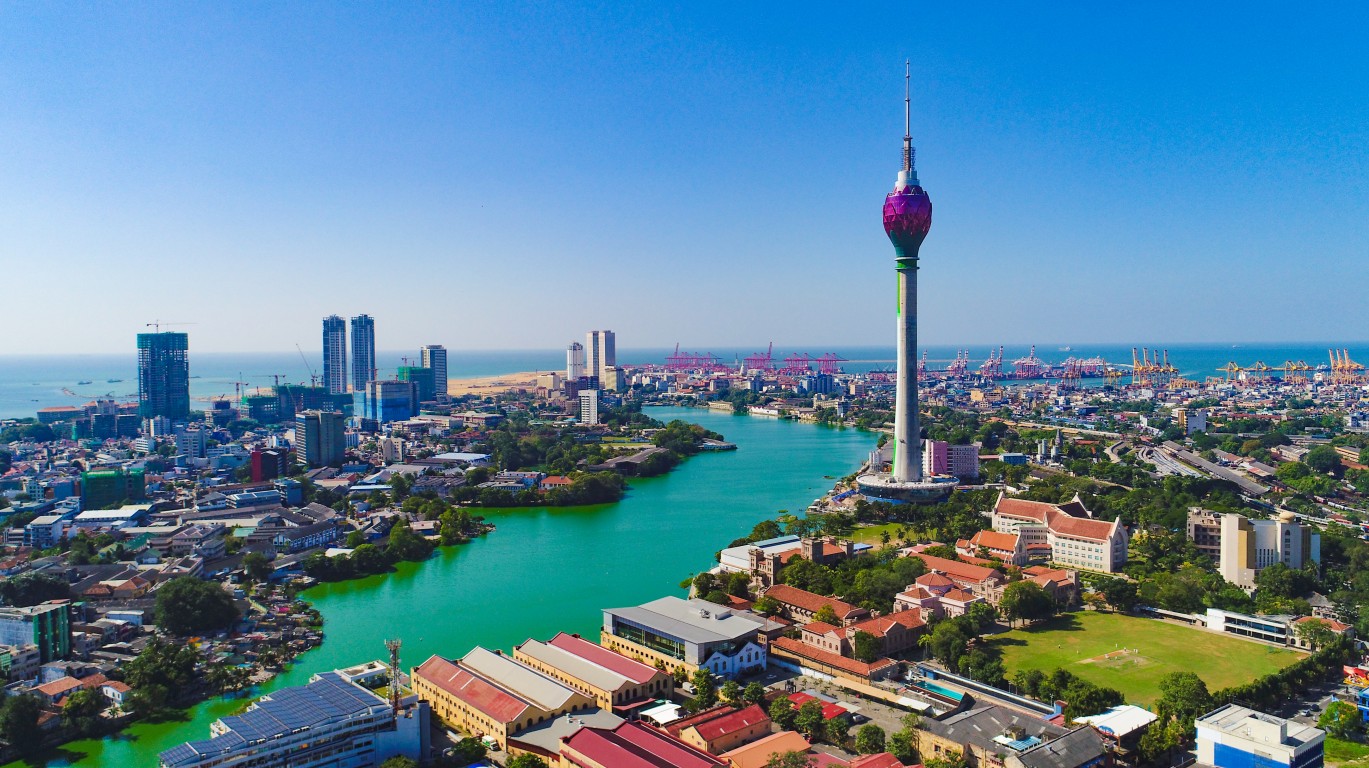
Sri Lanka
> Former name: Ceylon
> Year changed: 1972
The British termed this island off the southern coast of India Ceylon, based on an old Arabic name for it, Saheelan, a word of disputed origin. The nation changed its name in 1972 to the “Free Sovereign Independent Republic of Sri Lanka.” Six years later, it was changed again to the “Democratic Socialist Republic of Sri Lanka.” Lanka was the ancient name of the island and “sri” is an honorific meaning “venerable.”
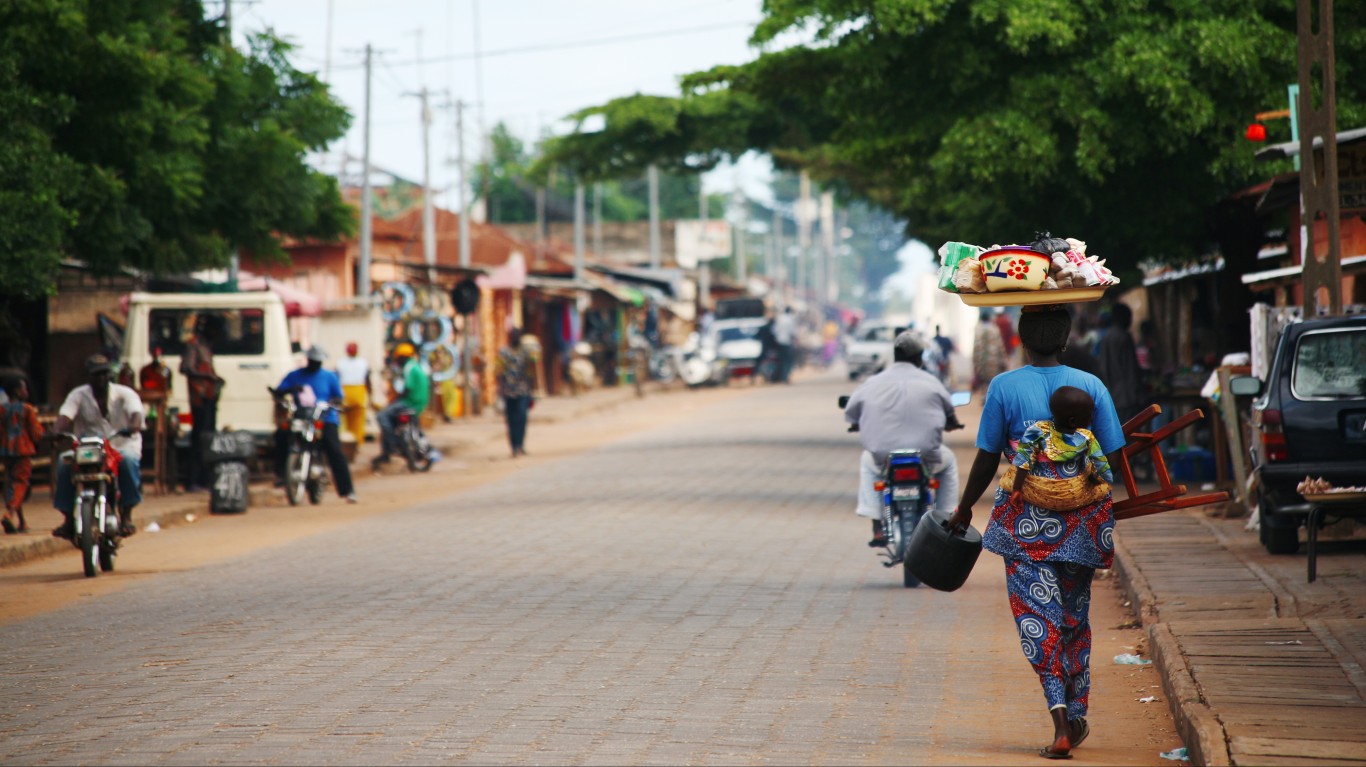
Benin
> Former name: Dahomey
> Year changed: 1975
An African nation on the Atlantic coast, Benin had been called Dahomey, after a West African kingdom that rose to prominence in the 15th century to occupy part of the present-day nation. Dahomey – whose name might derive from the words for “snake’s belly” in the language of the indigenous Fon people – became a French colony in 1872 and achieved independence in 1960. Its leaders changed its name to Benin in 1975, borrowing the name of the Bight of Benin, the bay on which a portion of it sits, whose name in turn references the Bini people in neighboring Nigeria.
[in-text-ad]
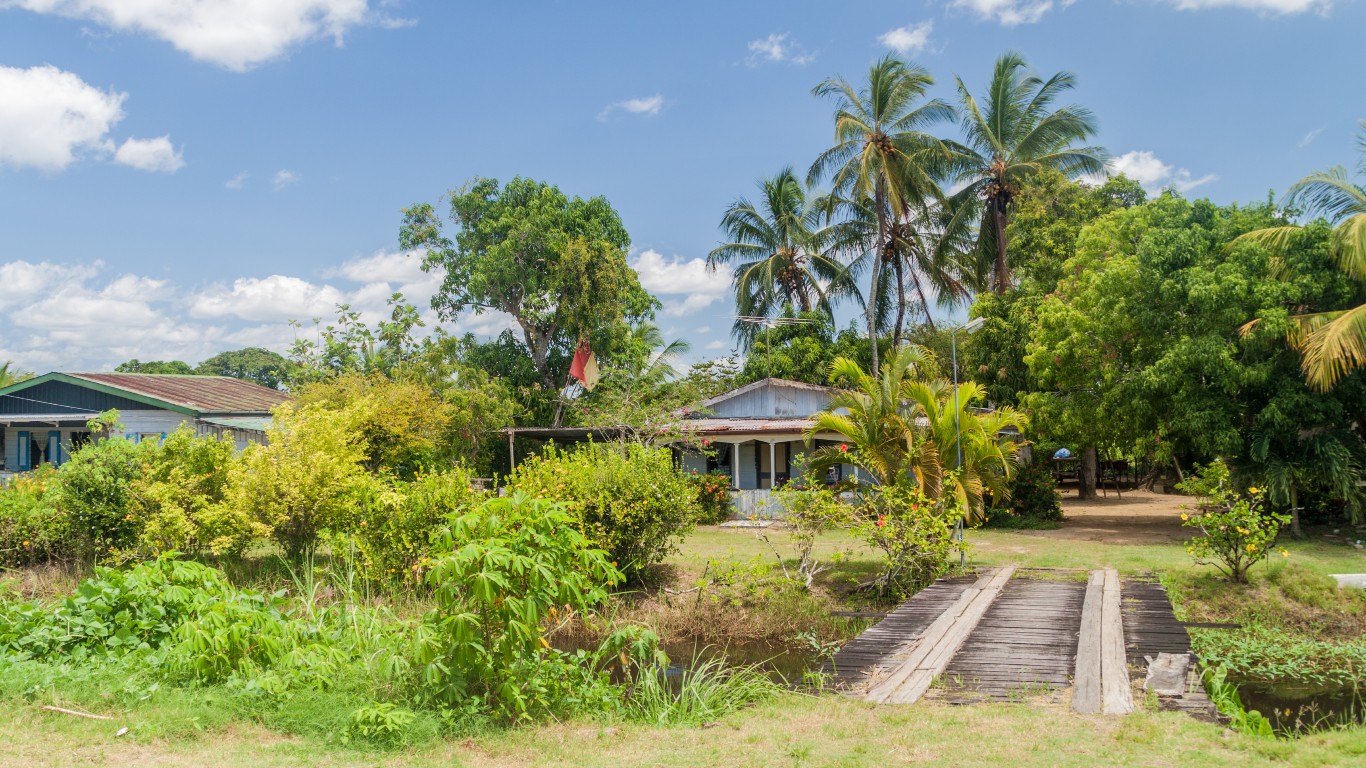
Suriname
> Former name: Surinam
> Year changed: 1978
Suriname is located on the northeastern coast of South America. Its name apparently refers to the Surinen people, who lived in the area when Europeans first arrived. The suffix “-ame” might come from a local word meaning “river” or “creek mouth.” British settlers, who in 1630 founded the first European colony along the Suriname River, spelled without its final “e” and this became the standard English rendering. In the 17th century, the territory was taken over by the Dutch, who used it to export sugar. It became part of a group of colonies called Dutch Guiana. The nation gained independence from the Netherlands in 1975, and the official spelling of its name was changed to “Suriname” in 1978.
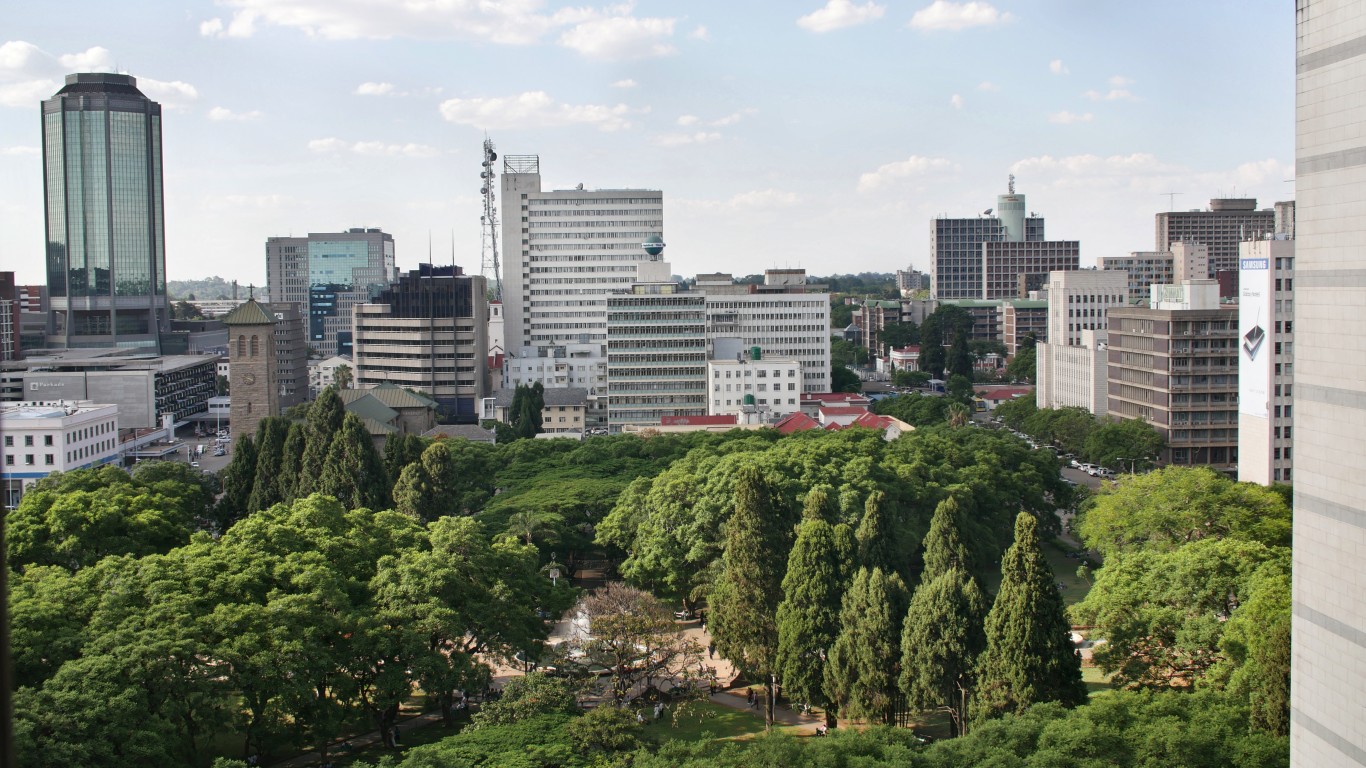
Zimbabwe
> Former name: Republic of Rhodesia
> Year changed: 1980
Zimbabwe, a landlocked country in southeastern Africa, occupies the territory of what was once the British colony of Southern Rhodesia – named for the imperialist politician and entrepreneur Cecil Rhodes. After it declared independence from Great Britain in 1965, it became known as simply Rhodesia and then the Republic of Rhodesia, but it remained under white minority control until 1979. In the early 1960s, Black nationalists began using the name Zimbabwe – which may mean “stone houses,” and comes from Great Zimbabwe, a medieval city in the region that is now a World Heritage Site. After UN sanctions and a guerrilla uprising led to free elections in 1979 and the Black majority took power, the name became official.
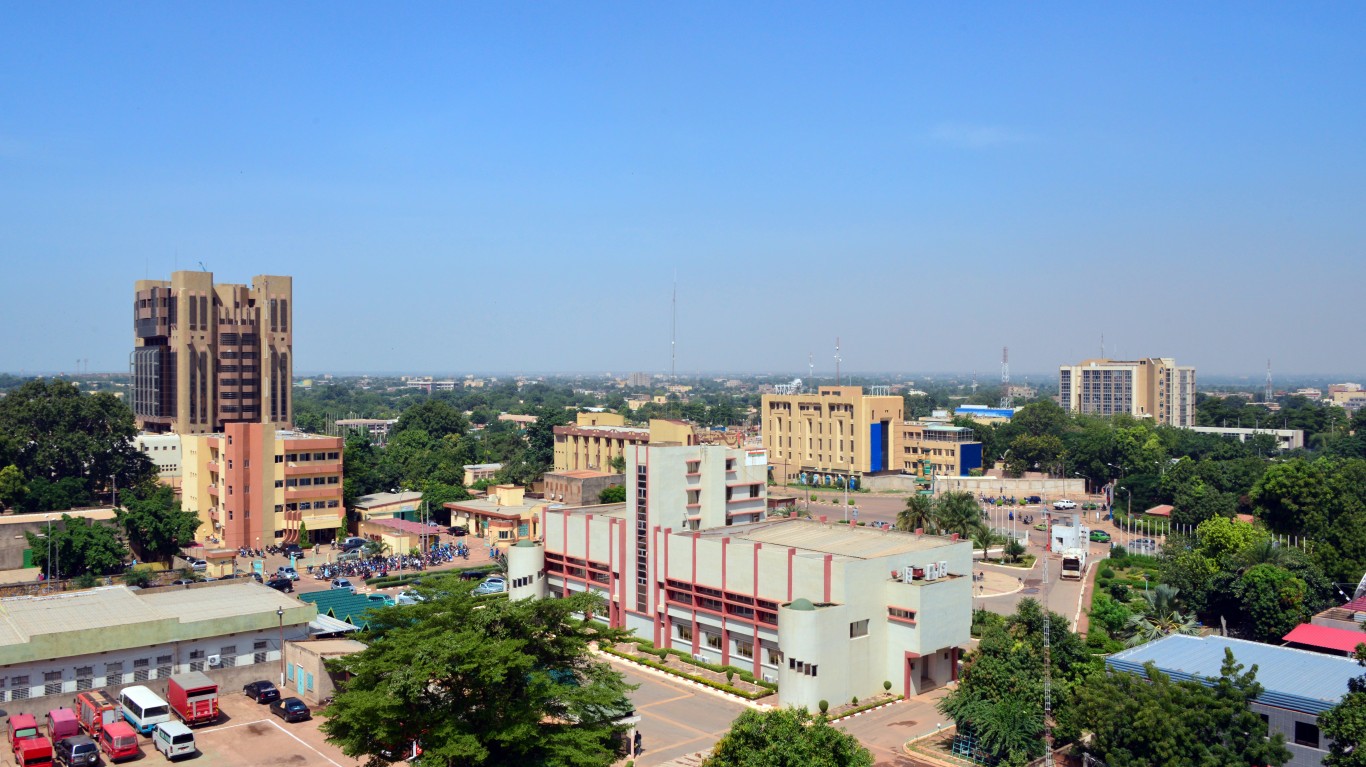
Burkina Faso
> Former name: Republic of Upper Volta
> Year changed: 1984
A small landlocked country in West Africa, Burkina Faso was formerly a part of French West Africa called Upper Volta (or Haut-Volta), after the Volta River. It became the self-governing Republic of Upper Volta under the French in 1958 and two years later won full independence. In 1984, its president at the time, Thomas Sankara, renamed it Burkina Faso, to help distance his nation from its colonial past. The two parts of the name come from different local languages, but together mean something like “land of the honest men.”
[in-text-ad-2]
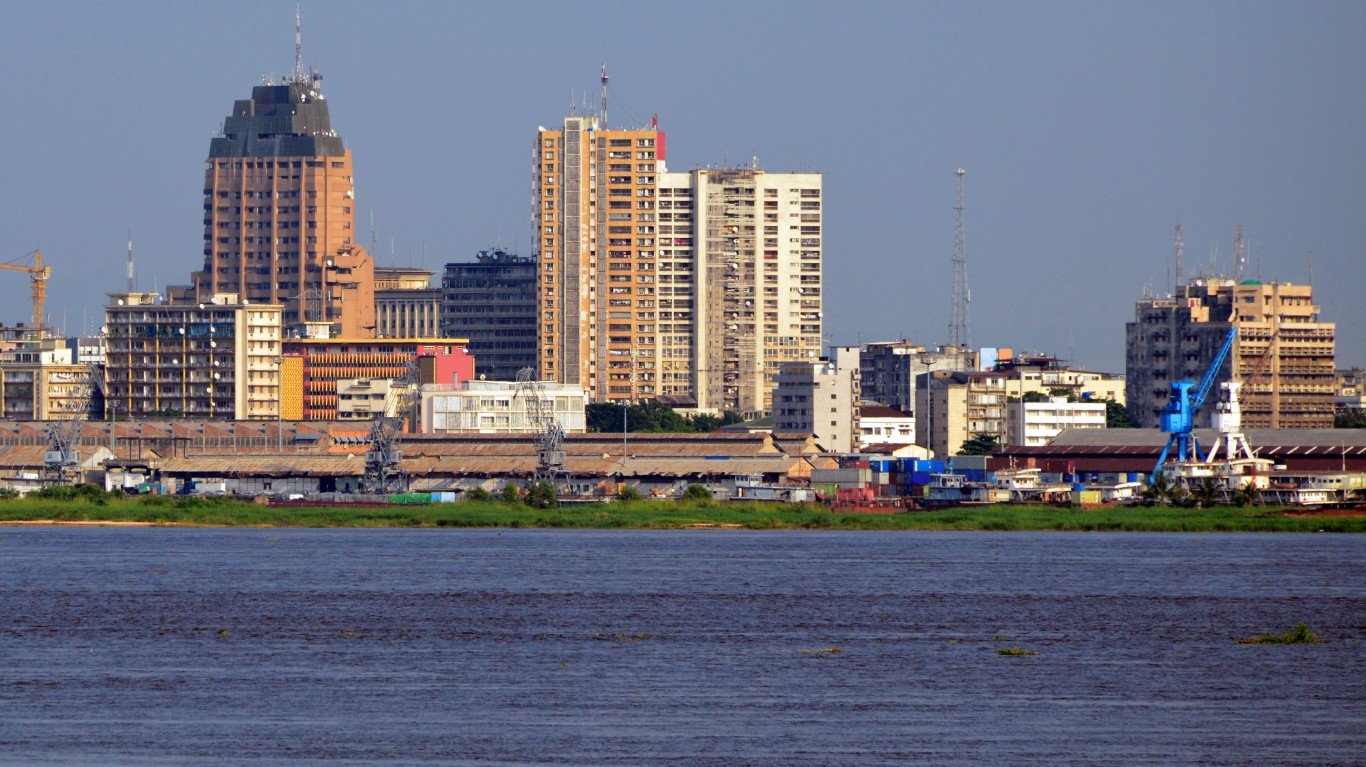
Democratic Republic of Congo
> Former name: Republic of Zaïre
> Year changed: 1997
The Democratic Republic of Congo in central Africa is the continent’s second-largest country by land area after Algeria. In 1885, the Belgian king, Leopold II, established the so-called Congo Free State as his personal fiefdom. Belgium itself took it over officially in 1908 and from then until 1960, it was the Belgian Congo. After it gained independence, it was torn apart by civil war, until an army officer named Mobutu Sese Seko seized power and established a dictatorship in 1965. He rechristened the country Zaïre, after a name for the Congo River. Mobuto was deposed in 1967, and the new head of state, Laurent-Désiré Kabila, gave it its current name.
Cabo Verde
> Former name: Cape Verde
> Year changed: 2013
In 2013, this West African island country officially changed its English name, Cape Verde, to the Portuguese equivalent, Cabo Verde. (The Portuguese first colonized the archipelago in 1462 with the intention of using the islands as a base to give their sailors access to West African trade – including the trade in slaves.) In either spelling, the country takes its name from the Cap-Vert, meaning “green cape,” a verdant Senegalese promontory to the east of the islands – which in fact the Portuguese had dubbed Cabo Verde when they discovered it in 1444.
[in-text-ad]
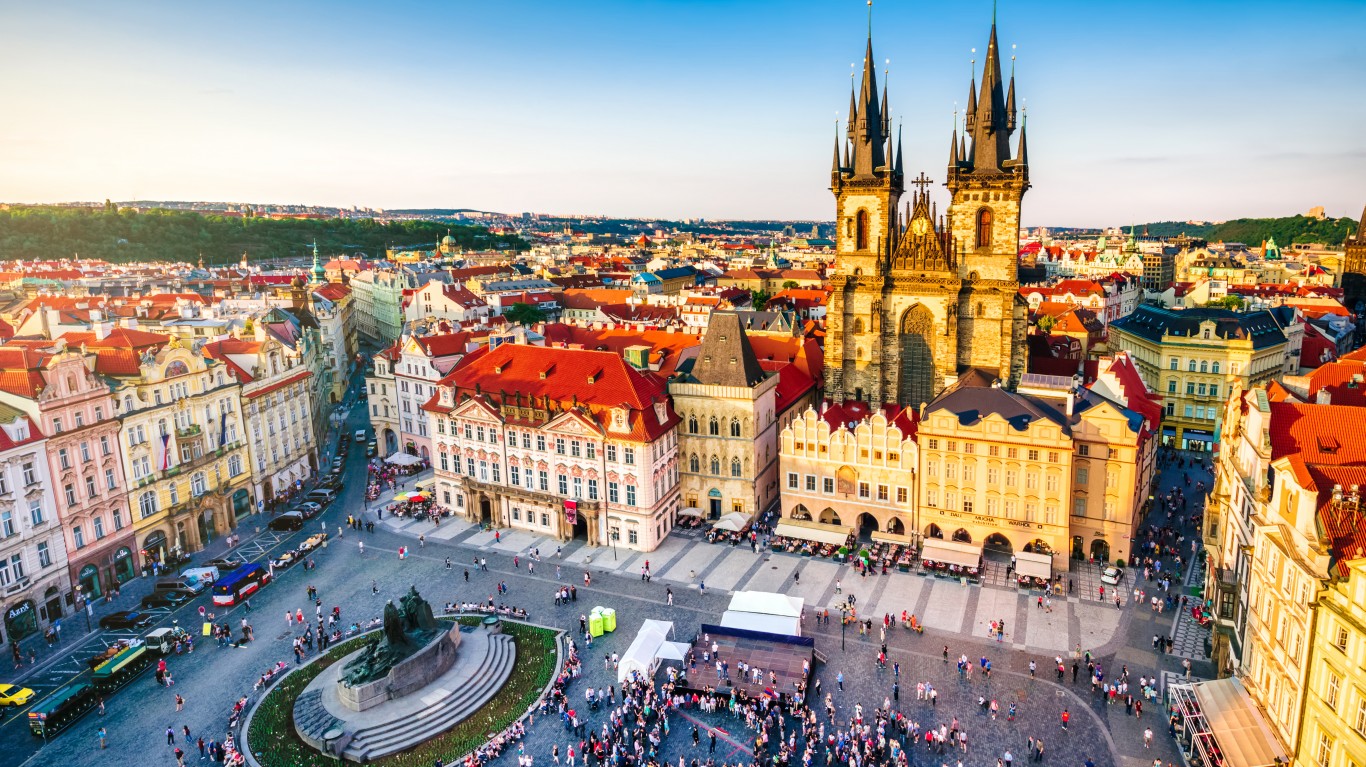
Czechia
> Former name: Czech Republic
> Year changed: 2016
The Czech Republic came into being after the dissolution of Czechoslovakia at the end of 1992 led to the creation of the Czech Republic and the Republic of Slovakia. The former nation’s leaders opted to change the name to Czechia in April 2016 because they believed the other name was too long to draw international attention and lure foreign investment.
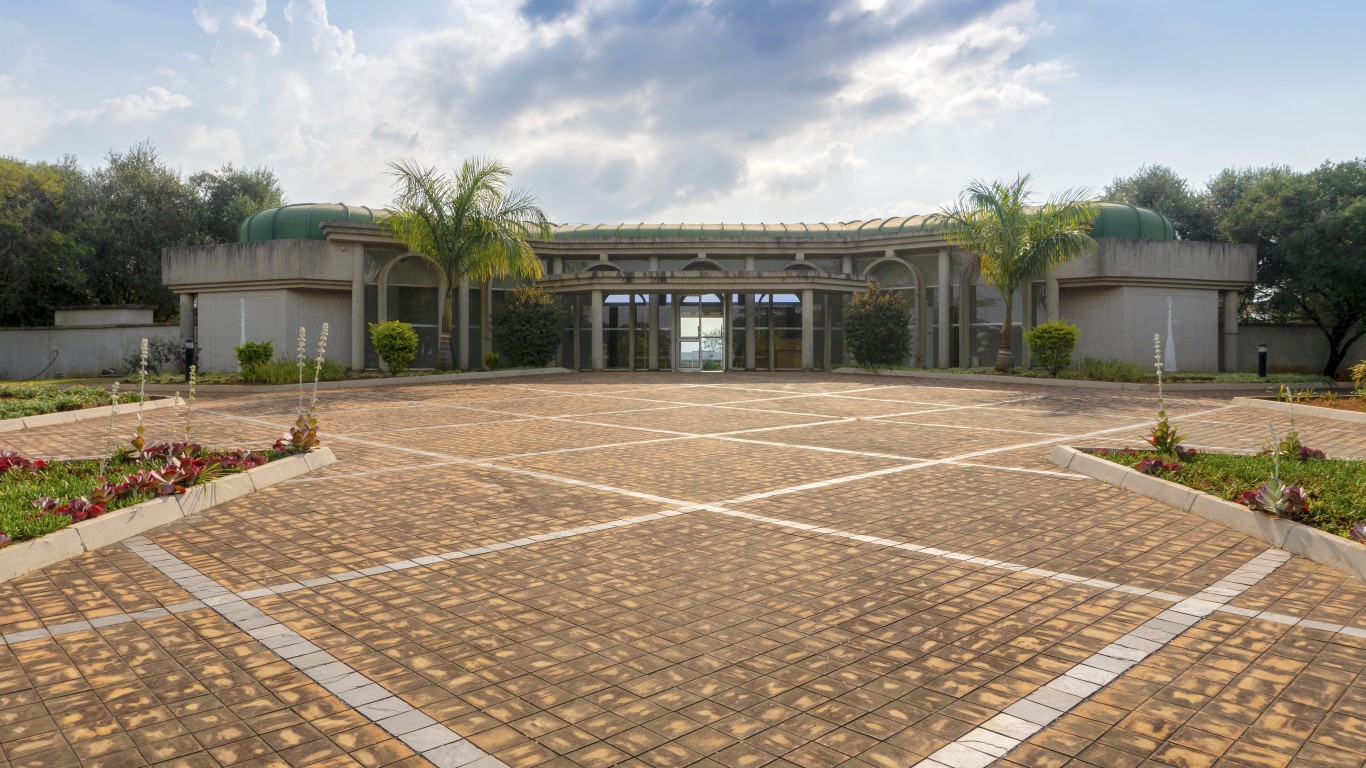
Eswatini
> Former name: Swaziland
> Year changed: 2018
To mark the 50th anniversary of its independence from Great Britain, King Mswati III turned Swaziland into Eswatini (sometimes rendered eSwatini), a move that some citizens objected to, as he never consulted anyone on the change. Both names are taken from the indigenous Swazi people (themselves named for an early ruler), though the new name is in the Swazi language. As is the case with some other name changes in Africa, the move was intended to distance the tiny southeastern African nation from its colonial past. It has also been suggested that Mswati wanted to avoid the possibility of his country being confused with Switzerland.
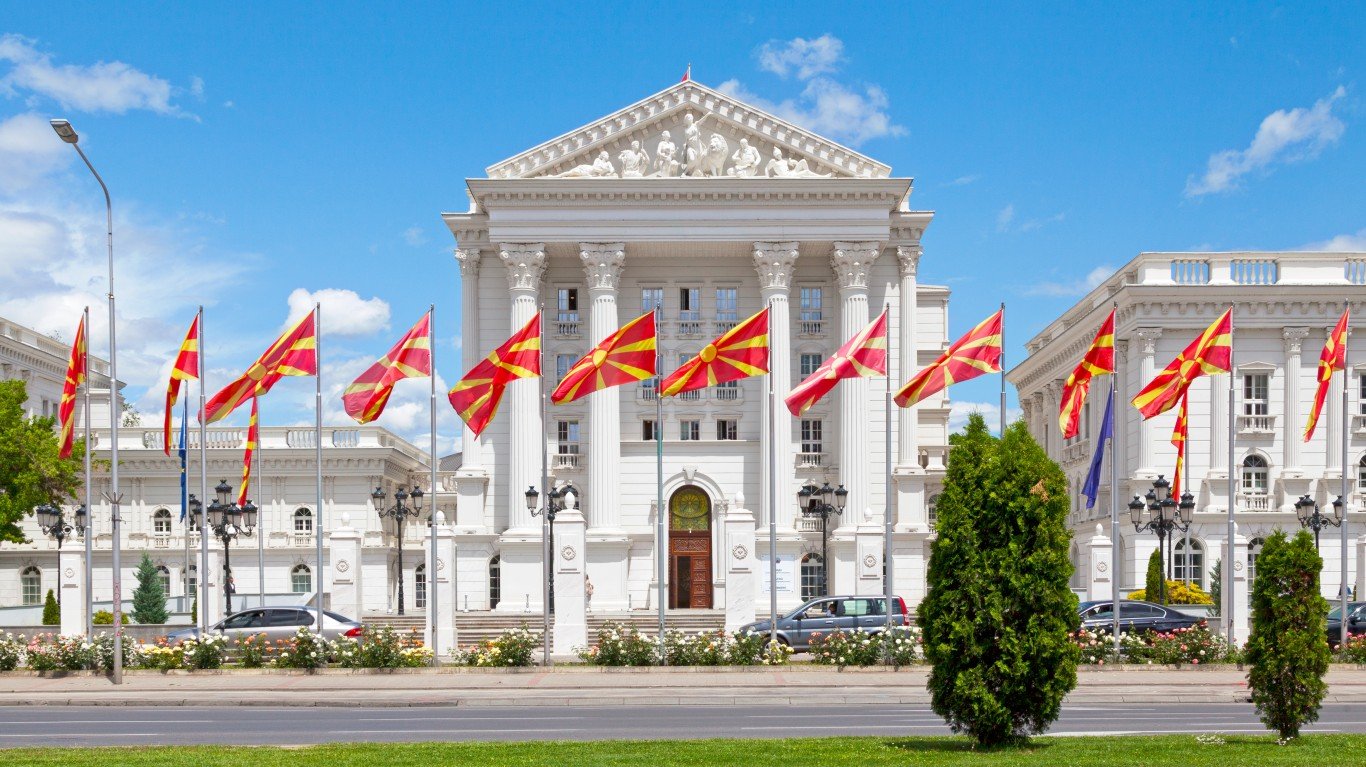
North Macedonia
> Former name: Macedonia
> Year changed: 2019
Politics in the Balkans can be confusing and volatile, and Macedonia’s name change to North Macedonia underscored that reality. Macedonia was one of the six republics that made up Yugoslavia, and it kept the name following that country’s breakup in 1991. That caused problems with neighboring Greece, which has a historic region in the northern part of the country also called Macedonia. The dispute complicated the newly created Balkan country’s entry into NATO, which the alliance sought for stability in the Balkans. Greece dropped its opposition when Macedonia agreed to the clarifying name change in 2019.
[in-text-ad-2]
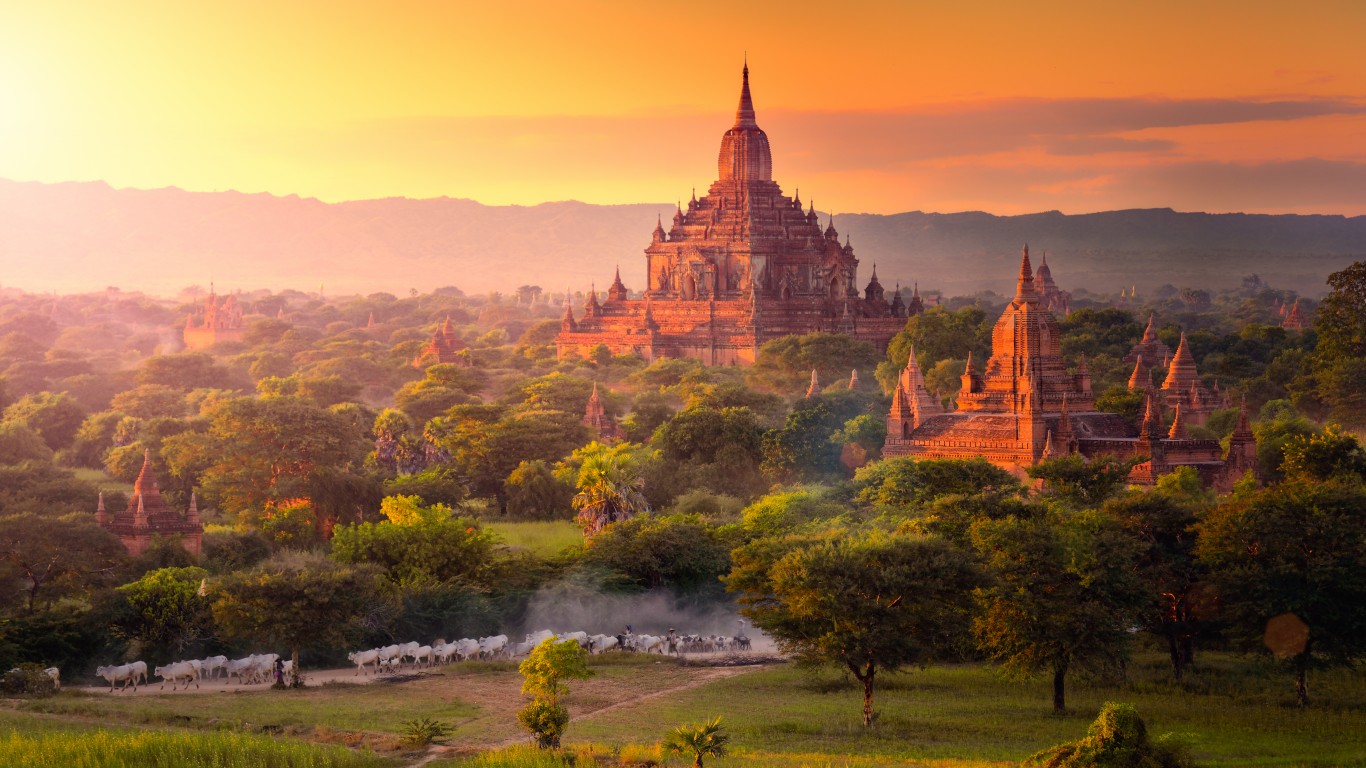
Myanmar
> Former name: Burma
> Year changed: 2019
For many years, the outside world called this Southeastern Asian nation Burma, after the majority Burman ethnic group. In 1989, following a military coup, the ruling junta suddenly changed the nation’s name to Myanmar, an old name for the country, of uncertain etymology. Angered by the government’s suppressive tactics, the rest of the world continued to call the country Burma at first, and only began using the new name.
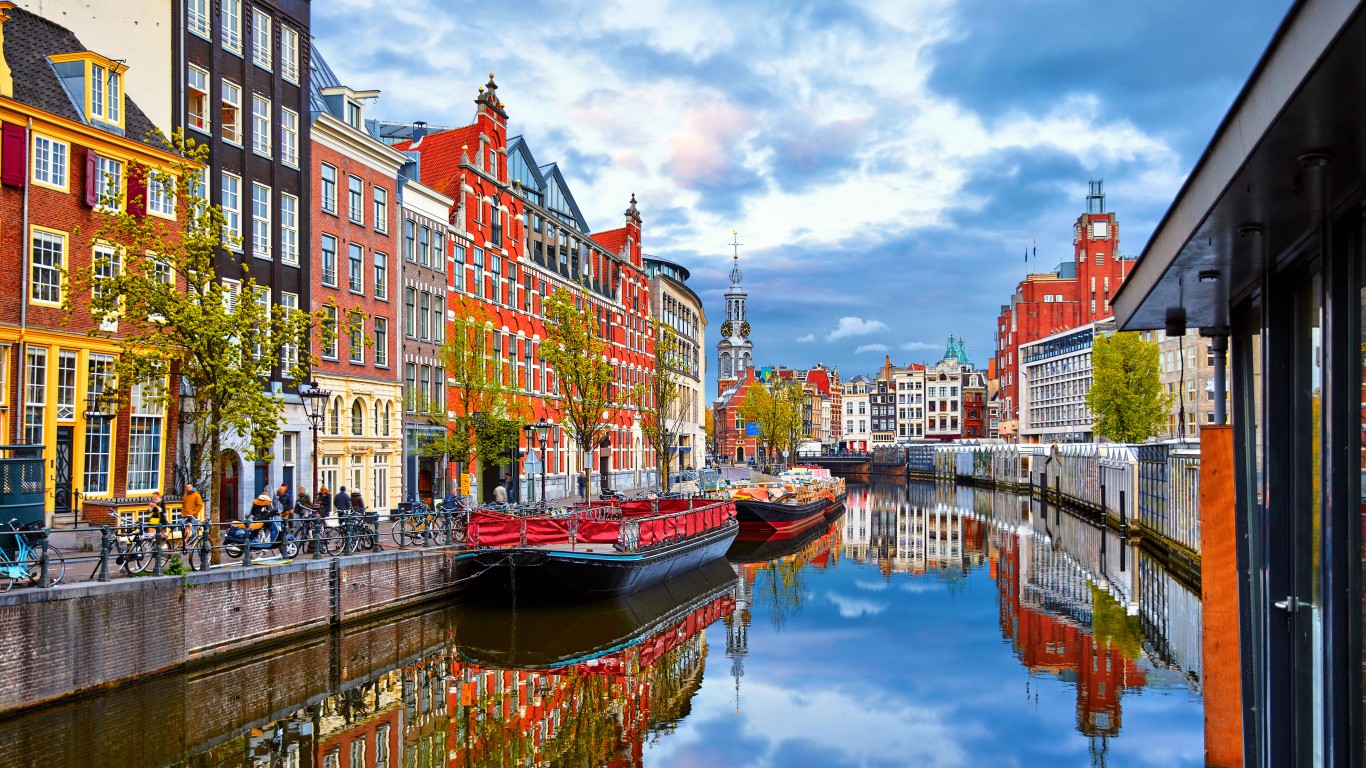
The Netherlands
> Former name: Holland
> Year changed: 2020
Holland is officially yesterday’s name for this part of the Low Country in Western Europe. In January 2020, the Dutch government announced that the nation will henceforth always be referred to as The Netherlands, its official name. The change is part of a national rebranding effort to more efficiently manage tourism. “Holland” actually refers to two Dutch provinces, and Dutch officials believe the official name change represents the entire nation better.
[in-text-ad]
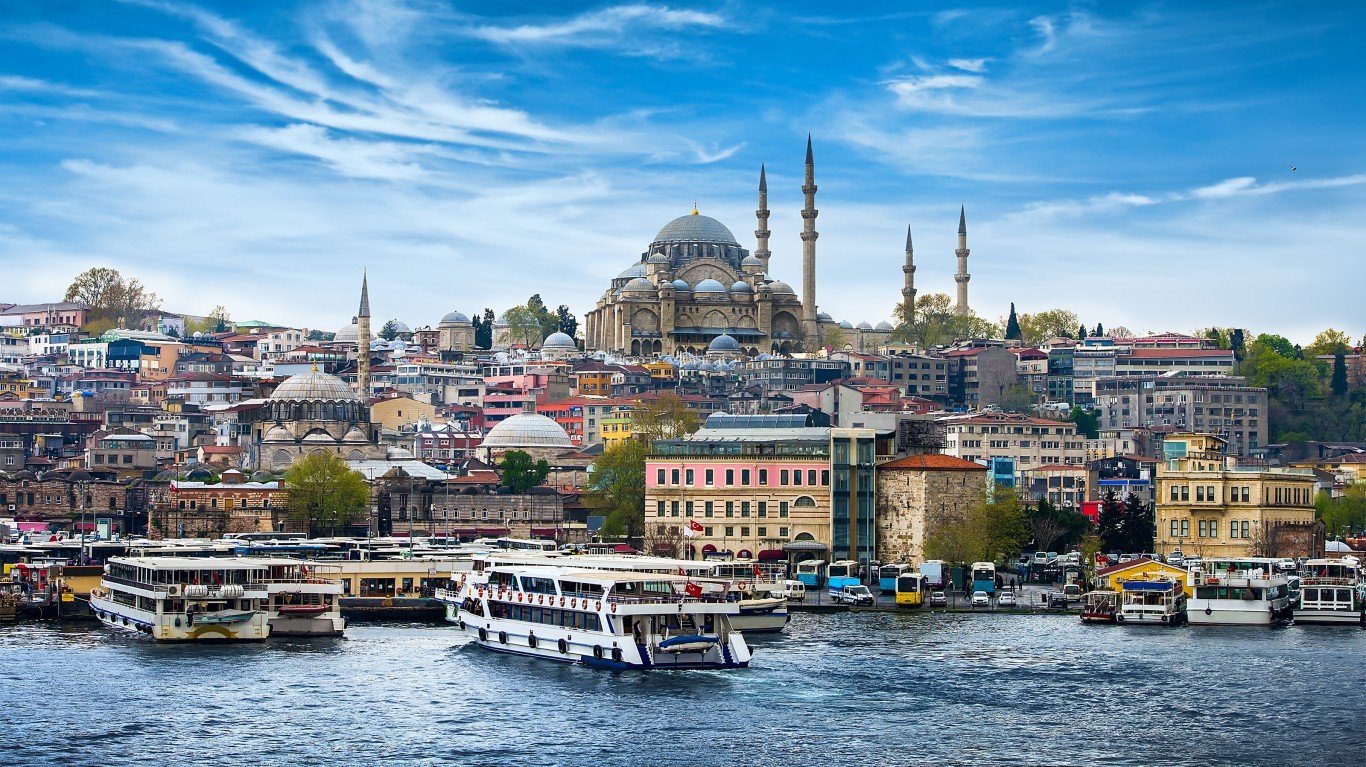
Türkiye
> Former name: Turkey
> Year changed: 2022
Turkey is the latest nation to change its name, now calling itself Türkiye (pronounced approximately“tur-key-yay”). President Recep Tayyip Erdoğan has said that the new name “ represents and expresses the culture, civilization, and values of the Turkish nation in the best way.” The country’s officials also said the name change was made because they are tired of being associated with the bird that is the symbol of the North American Thanksgiving holiday. They are also presumably aware of the English slang meaning of the word – loser or dud.
Sponsored: Want to Retire Early? Here’s a Great First Step
Want retirement to come a few years earlier than you’d planned? Or are you ready to retire now, but want an extra set of eyes on your finances?
Now you can speak with up to 3 financial experts in your area for FREE. By simply clicking here you can begin to match with financial professionals who can help you build your plan to retire early. And the best part? The first conversation with them is free.
Click here to match with up to 3 financial pros who would be excited to help you make financial decisions.
Thank you for reading! Have some feedback for us?
Contact the 24/7 Wall St. editorial team.
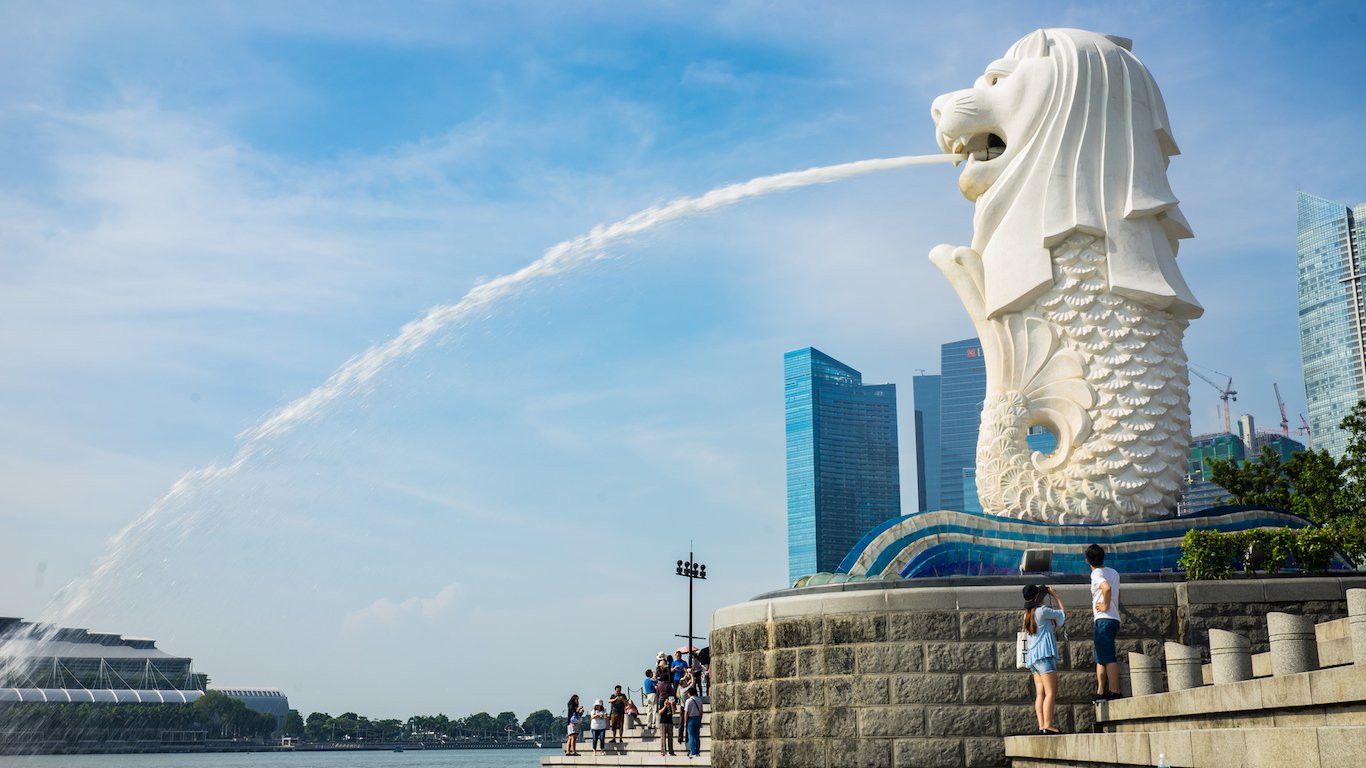 24/7 Wall St.
24/7 Wall St.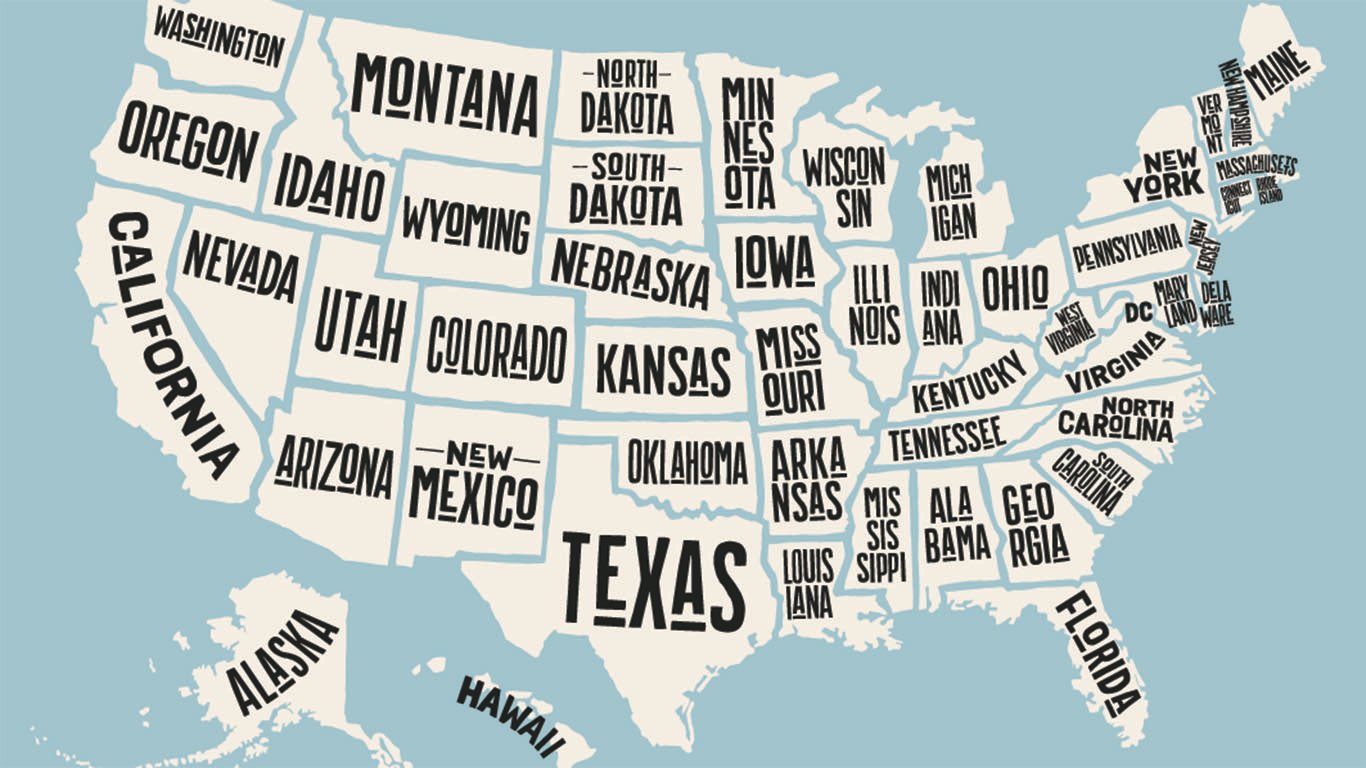 24/7 Wall St.
24/7 Wall St.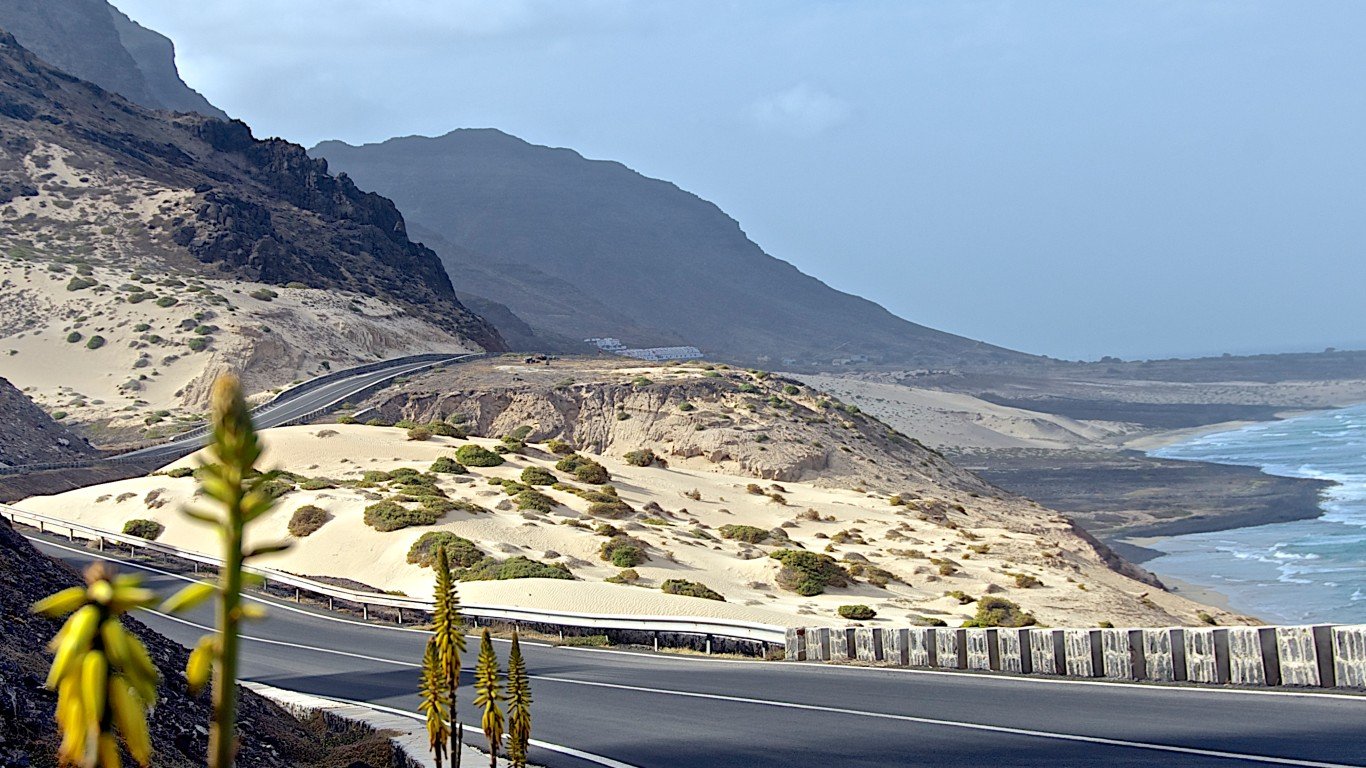
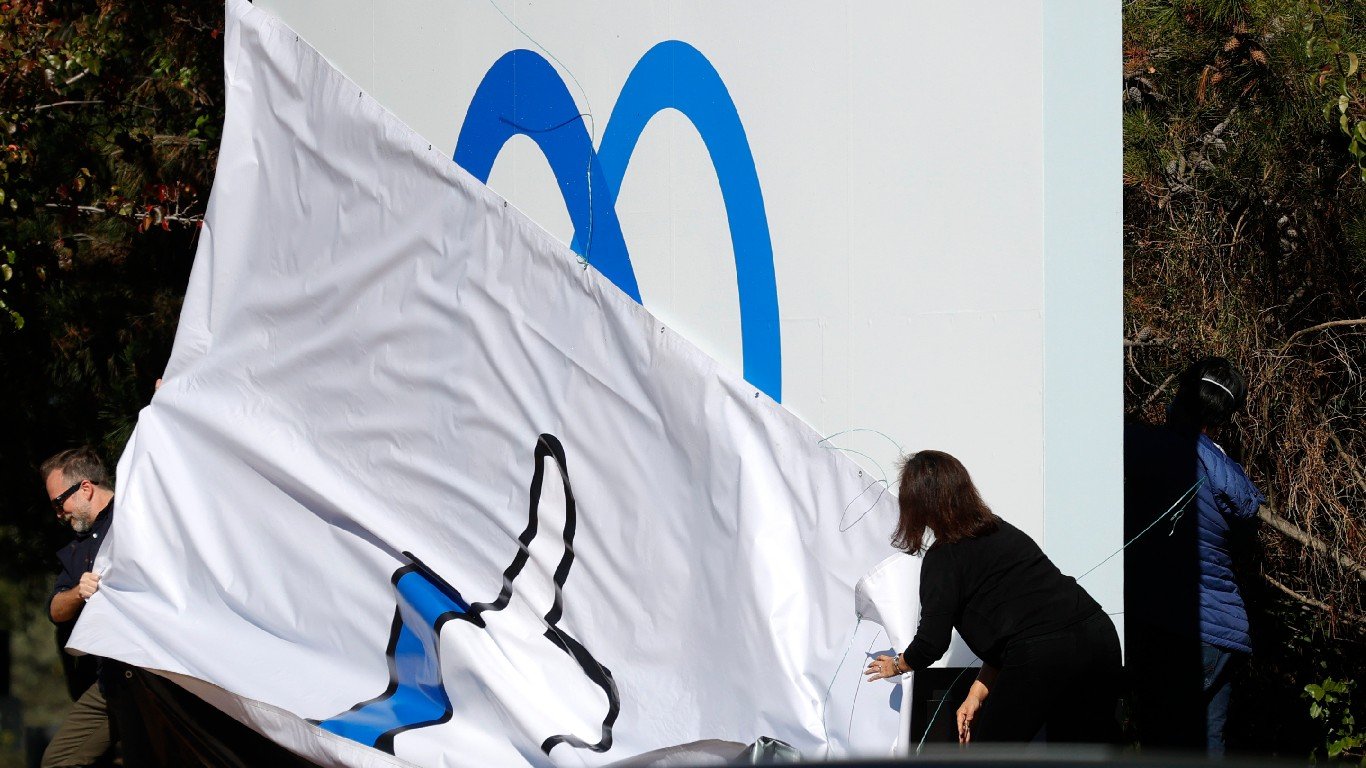 24/7 Wall St.
24/7 Wall St.